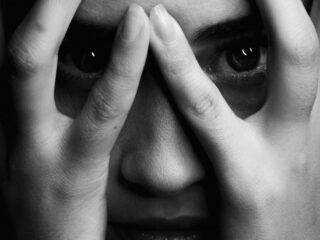
Symptoms of Anxiety Disorders:
-Increased heart rate
-Feeling helpless
-Feeling nervous
-Hyperventilation
-A sense of impending danger, doom or panic
-Trembling
-Sweating uncontrollably
These anxious and panic feelings can take a toll on you, making it hard to even go about your daily activities. They can also be hard to control and when out of proportion, they can actually make you avoid certain situations or places.
If you find anxiety affecting your everyday life and relationships, then it’s time to consult a health care provider. The practitioner can help determine the underlying physical problem before consulting a mental health professional. Taking an anxiety test can also help you understand your feelings better and recognize early signs of the disorder.
While most individuals suffering from anxiety disorder require medications or psychotherapy to get the situation under control, coping strategies and lifestyle changes can also help address the situation. With that being said, here are several tips that should help you cope with anxiety:
- Stay Physically Active
Consider making a routine that allows you to stay physically active on most days. Exercise is known to be a stress reliever and boosts both your energy and health. Begin slow and gradually increase the amount as well as the intensity of your workouts.
- Avoid Alcohol & Drugs
Studies show that alcohol and recreational drugs can either cause or worsen anxiety. If you find it hard to let go, do not be afraid to seek professional help or join a support group. Cut back drinking caffeinated drinks and smoking as well. That’s because caffeine and nicotine also make anxiety worse.
- Use Stress Management & Relaxation Techniques
Yoga, meditation, and visualization techniques are all examples of ways to relax and ease anxiety. Paso CBD has been proven to help to manage the symptoms of stress and anxiety.
- Prioritize on Quality Sleep
Anxiety disorders can also affect your sleep quality, which in turn takes a toll on your health and well-being. So, do what you can to ensure you get adequate sleep. If you find it hard to fall asleep, proper exercise, healthy food, and sticking to a sleep schedule should be of help.
- Eat Healthy Foods
Healthy meals that incorporate whole grains, proteins, fruits and vegetables may be linked to reduced anxiety. However, further studies are needed to ascertain this.
- Stick to the Treatment Plan
You will want to attend all therapy appointments, take medications as instructed, and do any tasks assigned by your therapist. Consistency is key here in fighting your anxiety.
- Know Your Triggers
It’s also best to know what actions or situations make you feel anxious. Once you identify them, it will be easier to fight anxiety with the tips mentioned above.





